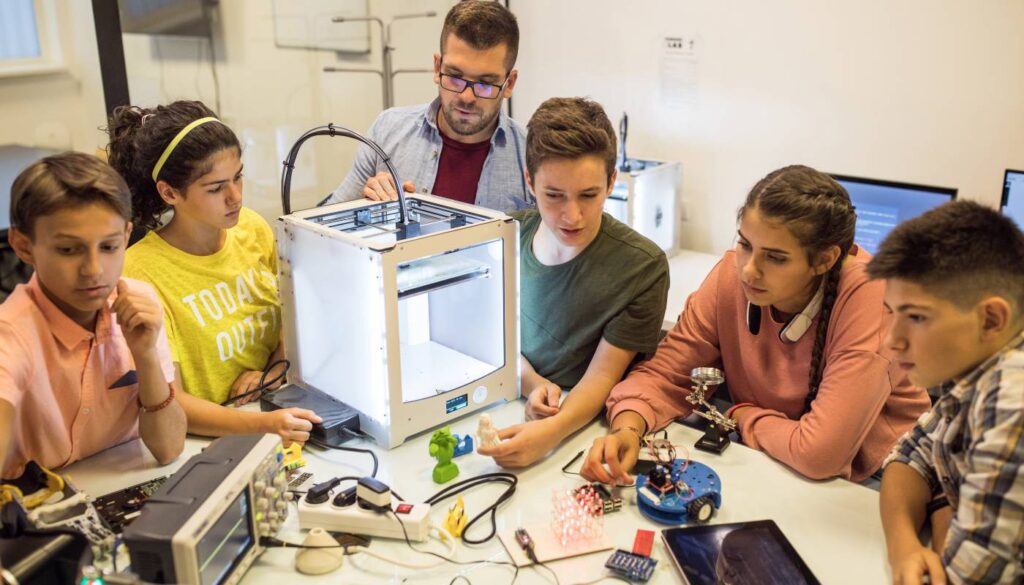Adaptive learning technologies are sophisticated forms of e-learning that adapt to the learner and his or her learning style, as well as learning content and pace. They monitor and evaluate students’ pedagogical competence concerning matter and concepts in the course with a view of offering customized learning modalities, support and evaluation.
In other words, adaptive learning technologies follow how students learn. They are computerized systems that utilize algorithms and machine learning to change their behavior based on the students’ engagement and their performance. It tracks student progress, skills, or areas that might need attention, and even their preferred modes of learning as they endeavor to solve assignments based on course content. It then uses this information to modify the course content and learning activities and assessments in real time to match each student’s ZPD. This helps in developing a highly personalized learning environment that will help extract the best out of every learner.
How The Adaptive Learning Technologies Function
All the technologies that Adaptive learning are based on algorithms and predictive analytics. As students use the technology, it assesses the response, skills, psychological conditions, and learning behaviors against an intrinsic learning map or ontology. This map outlines all the ideas, content knowledge, abilities and learning outcomes of a specific subject or lesson. This ontology is used in the adaptive engine where machine learning algorithms are applied to compare each student’s characteristics and performance with the ontology in order to come up with individual learning paths for each students given their strengths and weaknesses.
For instance, if a student is weak in multiplication questions the system will identify this from the performance against the learning ontology and will provide more learning resources and practice questions for multiplication. It may also require a slower rate of teaching or a basic approach in lessons involving multiplication in an effort to rectify the misunderstanding before proceeding to the next level. These are real-time refinements to the system based on the nature of the interaction with the student. Consequently, the adaptive learning systems maintain students on their toes but at the same time making sure that the learning activities do not get out of the “Goldilocks Zone.”
Advantages of Adaptive Learning Technologies
Adaptive learning technologies can then be used at scale to replace traditional one size fits all application of education by providing true adaptive learning. Some of the major benefits this new breed of e-learning systems promises to provide include:Some of the major benefits this new breed of e-learning systems promises to provide include:
– Student-centered, flexible instructional structures that provide individualized instruction based on student learning styles and paces. This enhances interactions and the level of learning achieved.
– Instant feedback and evaluation that provide students with clear ideas of their strong and weak points and directs their work in the right direction.
– Flexible difficulty settings that eradicates frustration, boredom and lack of interest in the learning process of the students.
– Features that allow teachers to monitor class and individual student progress based on objective data. This allows timely interventions.
– Applicability in large, medium, and small organizations and across different contexts. Flexible methods can therefore be applied to small or large classes.
– Efficiency in terms of customized and optimized resource deployment at the least cost possible. There is little need for manual intervention.
As a result, adaptive learning tries to make learning more enjoyable, efficient, and possible to achieve by different categories of learners. Based on the current studies, it has been discovered that the adaptivity of learning increases the scores, retention rates, and satisfaction of students as compared to traditional online learning methods.
Difficulties Of Integrated Adaptive Learning Technologies
While their potential is immense, effective implementation of adaptive learning technologies comes with some key challenges including:While their potential is immense, effective implementation of adaptive learning technologies comes with some key challenges including:
– High initial costs associated with establishing strong platforms and material and courses creation.
– Lack of skilled people to design complex software architecture and develop intricate algorithms.
– Challenges in monitoring the important analytics and improving the systems to become highly personalized
– Risk of over-saturation that results in highly prescriptive learning opportunities. It is difficult to try and strike a balance.
– Challenges that stem from data privacy and ethical use of data belonging to learners. Concerns around exploitation exist.
Other issues like adoption of LMS to ensure fairness, compatibility of platforms, gaining support from the stakeholders and managing change are other critical factors to consider for adoption. While offering many potential benefits, adaptive solutions are still in the developmental stage. Further research needs to be done to understand how these adoption barriers can be mitigated by doing more work on the best practices.
Adaptive learning technologies: future perspective
Although currently in their infancy, the use of adaptive learning systems is predicted to experience phenomenal growth and development over the course of the next ten years. Continuous improvement targeting a number of recent technologies including the application of AI, ML, semantic web and VR has the potential to transform these platforms into smart, user sensitive and cognitive models.
Similarly, continued progress in standards for learning data interoperability and analytics will also drive a fast growth rate. With the time, ethical and pedagogical challenges can be solved, and adaptive solutions may create a foundation for personal, close to fair and highly valuable lifelong learning for everyone through human-centered automation. They are believed to completely transform both formal and informal education systems around the globe. Thus, the future looks promising for this quickly growing type of ed tech that is still dedicated to enhancing the learning process for every individual learner.
Conclusion
Adaptive learning technologies are the advanced e-learning technologies that enable the enhancement of learning activities in real-time with references to the student’s learning solution matrices, learning style, and performance patterns. Initial findings indicate massive potential for learning platforms based on adaptivity, machine learning and enhanced data analysis to enhance learning outcomes and efficiency as compared to conventional approaches. However, to achieve its implementation is not a trivial task as it presents ethical, pedagogical, and data architecture problems. More innovation along human-automation task design will extend the optimal space for adaptive solutions to create change towards more positive, fulfilling, and lifelong learning experiences for learners.
Seeking more informative articles? Business Vision Magazine is your go-to source.






